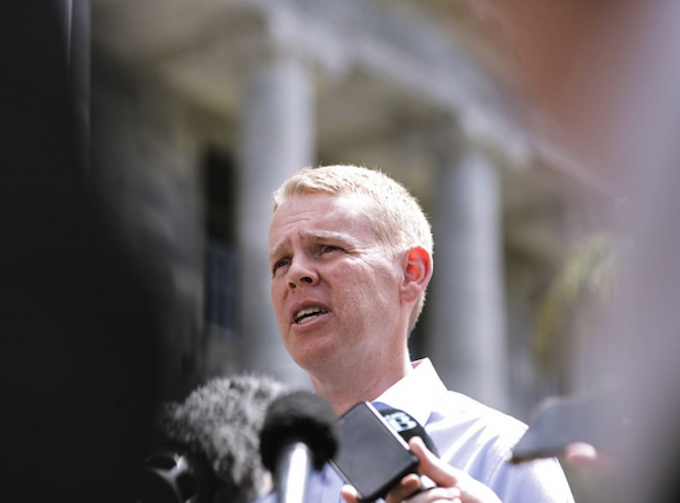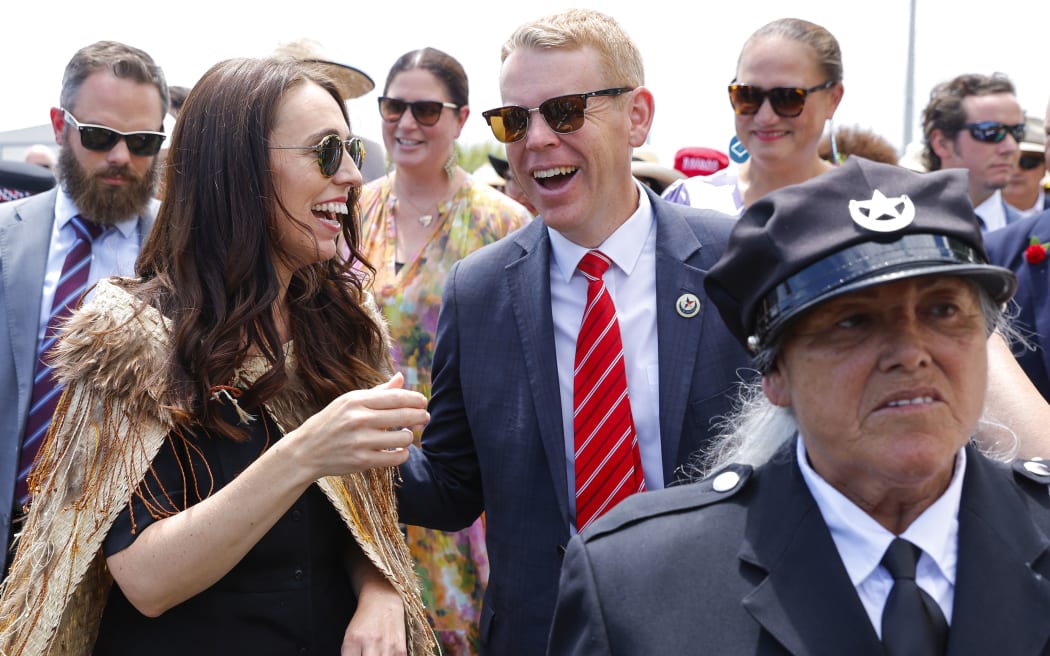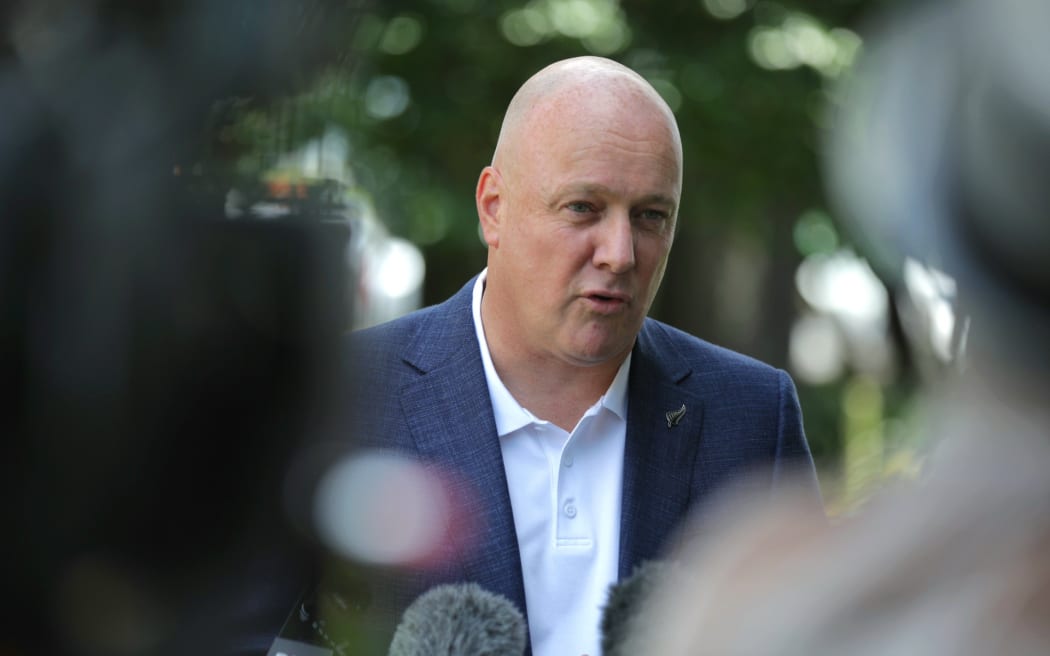
ANALYSIS: By Peter Wilson, political commentator for RNZ News
Tuesday, February 7, at 2pm. That’s when New Zealand’s new Prime Minister Chris Hipkins’ parliamentary year begins and he faces National leader Christopher Luxon in the debating chamber for the first question time of 2023.
He needs to “Win the House”, as the saying goes. That means getting the better of the other side, and Hipkins has to show his caucus that he is up to it.
Hipkins is a vastly experienced parliamentarian, but there is nothing like being in the hot seat directly facing the leader of the opposition.
He can be expected to take it to Luxon and ACT leader David Seymour more aggressively than Jacinda Ardern did, he is more of a “take no prisoners” politician than she was and he needs to get some hits in early on.
Hipkins has had a great start with two opinion polls showing Labour has regained the ground it lost to National.
The 1News Kantar poll showed Labour up five points to 38 percent and National down one point to 37 percent.
Newshub’s Reid Research poll had Labour up 5.7 points to 38 percent and National down 4.1 points to 36.6 percent.
Hipkins slightly ahead
In the preferred prime minister stakes, Hipkins was slightly ahead of Luxon in both polls.
Stuff‘s political editor Luke Malpass said the polls showed what no Labour figures dared to consider a fortnight ago — that the party might have better prospects under a leader other than Jacinda Ardern.
“Hipkins, it now appears, could be that person,” he said.
“In other words, by the time Ardern left she might have been a drag on the party vote.”
Luxon dismissed the poll results, saying nothing had changed.
“It’s the same government, and a new leader who can’t deliver,” he said. “It’s going to be an incredibly tight race.”
The poll details, and what the results would mean in terms of seats if an election was held now, are on RNZ’s website.
Labour’s new champion
After settling in to his debating chamber role as Labour’s new champion, Hipkins has to get his next big agenda item off the blocks — ditching policies and programmes that are in the way of his pledge to totally focus on “bread and butter” issues that affect people, which means the cost of living.
This process was started by Ardern at the end of last year and Hipkins needs to get it done and dusted because there’s sure to be the usual cries of “U-turn, U-turn”.
Although Ardern and Hipkins have explained it as necessary to the new focus on dealing with inflation and the cost of living crisis, there Is also an obvious political need in election year.

Labour wants to get rid of liabilities, policies and programmes that are causing trouble and are easy targets for the opposition.
Hipkins needs what MPs call clear air to explain and implement policies Labour hopes will reset the party’s direction, entrench the lead over National and ACT, and deliver a platform for the election campaign.
The new prime minister may be in his honeymoon period but the media knows he has to deliver.
“He will have to show there is more on the tin than just a new sticker, and in pretty short order,” said Malpass.
“It won’t be enough to just chuck the odd media merger and dank old bits of legislation over the side: It will have to be replaced by some actions on the ‘bread and butter’ issues Chris Hipkins says he is concerned about.”
Plagued by troubles
The New Zealand Herald’s political editor Claire Trevett said Hipkins’ job was to convince voters that Labour was focused “on the various troubles plaguing them now — from potholes to hip ops to the price of bread”.
“The talk is one thing, the delivery is another. Hipkins has no real option but to deliver.”
There’s been speculation about which policies and programmes will get the chop or be put on the slow track, and Stuff published a list with the top three being the RNZ/TVNZ merger, the Income Insurance Scheme (which National calls a jobs tax) and Auckland Light Rail.
It said other lesser known projects could join the list.
Hipkins must also deal with Three Waters, which has given the government more problems than anything else.
That’s more difficult because the legislation has been passed, but Hipkins has acknowledged he has to do something about it.
“We are going to look closely at the Three Waters programme,” he told Trevett in an interview. “There’s no question there has to be change. I don’t think we can just sit back and say ‘this is not our problem, this is a council problem’.
“I don’t think that would be responsible. But we also need to bring people along with us and what we are doing.”
Policy clear-out
When it comes to the policy clear-out, Hipkins has much more freedom than Ardern would have had.
She would have faced ferocious opposition attacks for dumping policies she had supported, her words would have been thrown back at her.
But Hipkins is a new prime minister, doing things his way, just as Ardern told him when she said “you must do you”. She was giving him free rein to do it his way.
Did she know Labour was heading in the wrong direction under her leadership, and that it wouldn’t win the next election unless there was drastic change?
One commentator who thinks so is Matthew Hooton.
Writing in the Herald, Hooton said Ardern so badly wanted her government to win a third term that she was prepared to step down.
“Labour’s masterful transition was carefully planned before Christmas by Ardern and her closest allies, Grant Robertson and Chris Hipkins, and flawlessly executed,” he said.
Capturing the initiative
“Political strategists spend every December working out how to capture the initiative in January, especially in election year. None has ever succeeded like Labour over the last week.”

Luxon hasn’t had a good run-up to the new parliamentary year.
Inevitably, he’s been eclipsed by Hipkins simply because he is the new prime minister but when Luxon has been able to get into the media he might have wished he hadn’t.
“National strategists seem dumbstruck,” Hooton said in his article. “Christopher Luxon was more incoherent than usual trying to explain where he stands on co-governance, the Māori seats, and whether women politicians receive worse abuse than males, pleasing neither the liberal nor conservative wings of his party.”
Stuff’s Andrea Vance said Luxon had actually helped ease Hipkins into the job “by being more mediocre than usual”.
“Somehow Luxon — whose one job last week was to stay on message — managed to drive down a co-governance cul-de-sac at`Rātana, and then spend the rest of the week doing bunny-hop u-turns to get out of it,” she said.
“And how did he manage to piss off women, again? The correct answer was ‘yes’, Christopher. Female politicians patently face more abuse than men.”
Abuse of women
She was referring to Luxon responding to a question about whether women politicians suffered more abuse than men by saying he wasn’t sure.
When Hipkins takes his seat in Parliament on Tuesday he’ll have his revamped front bench alongside him.
The cabinet reshuffle, as RNZ reported, means some of the government’s most contentious portfolios will have a fresh face.
One of the most interesting facets was Hipkins’ decision to appoint Michael Wood as Minister for Auckland.
Hipkins explained the need to “get Auckland pumping” after a difficult couple of years, but there’s a political imperative behind it as well which the Herald’s Trevett saw.
“It is aimed as a pre-emptive counter to the inevitable attacks from Auckland-based opposition leaders such as Christopher Luxon and David Seymour that the Wellington-based Hipkins is a beltway creation and out of touch with Auckland’s concerns,” she said.
“It sends a signal that Hipkins has his eye on Auckland and knows its importance.”
Peter Wilson is a life member of Parliament’s press gallery, 22 years as NZPA’s political editor and seven as parliamentary bureau chief for NZ Newswire. This article is republished under a community partnership agreement with RNZ.













































